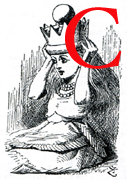 hristina Rossetti's "After Death" employs the voice of a woman speaking, as the title suggests, after her own death. She narrates the experience of having her beloved approach her bedside and of sensing that he at last feels some pity for her. Unlike her brother D.G. Rossetti's "The Blessed Damozel," she positions the dead woman not only as the speaker but also as a presence in the living world, rather than one in Heaven. Christina Rossetti's speaker is not, however, an active one. Though she can perceive the world around her, her focus is limited to the presence of her beloved. She can, for example, describe the room where she lays as one in which "The curtains were half drawn, the floor was swept" (Line 1); however, the passive construction of these lines suggests she does not know (or finds it unimportant to mention) the family members or loved ones who arranged her room and probably continue to mourn her death. Only her beloved enters her thoughts.
hristina Rossetti's "After Death" employs the voice of a woman speaking, as the title suggests, after her own death. She narrates the experience of having her beloved approach her bedside and of sensing that he at last feels some pity for her. Unlike her brother D.G. Rossetti's "The Blessed Damozel," she positions the dead woman not only as the speaker but also as a presence in the living world, rather than one in Heaven. Christina Rossetti's speaker is not, however, an active one. Though she can perceive the world around her, her focus is limited to the presence of her beloved. She can, for example, describe the room where she lays as one in which "The curtains were half drawn, the floor was swept" (Line 1); however, the passive construction of these lines suggests she does not know (or finds it unimportant to mention) the family members or loved ones who arranged her room and probably continue to mourn her death. Only her beloved enters her thoughts.
As the poem continues, this focus on the beloved only intensifies. The speaker never describes seeing this man (only hearing his refrain of "poor child") and he never touches her (she notes "He did not touch the shroud, or raise the fold/ That hid my face, or take my hand in his" [Lines 9-10]). She, however, can perceive that "he wept" (Line 8) and that "He pitied [her]" (Line 13) without extensive sensory experience of the scene. Thus Rossetti suggests a powerful and enduring connection the speaker has with her beloved, despite his previous lack of emotion toward her.
Questions
1. In what way does the fact that the speaker is no longer living affect her knowledge and sense of the world around her? Are we meant to trust the speaker's understanding of the scene?
2. Many Christina Rossetti poems like "The Convent Threshold" and "Song" present a speaker speculating about the afterlife. How the experience of the dead speaker in "After Death" differ from those speculations? What does Rossetti suggest in offering these various views of death?
3. Rossetti seems to privilege or give agency to the woman in the poem in giving her voice. What then should we make of the speaker's self-sacrificing gratitude for her beloved's pity? Does she fit the mold of Victorian ideals of womanhood? Of Dante Rossetti's ideal of the "Fair Lady"?
Related Materials
Last modified 19 October 2003